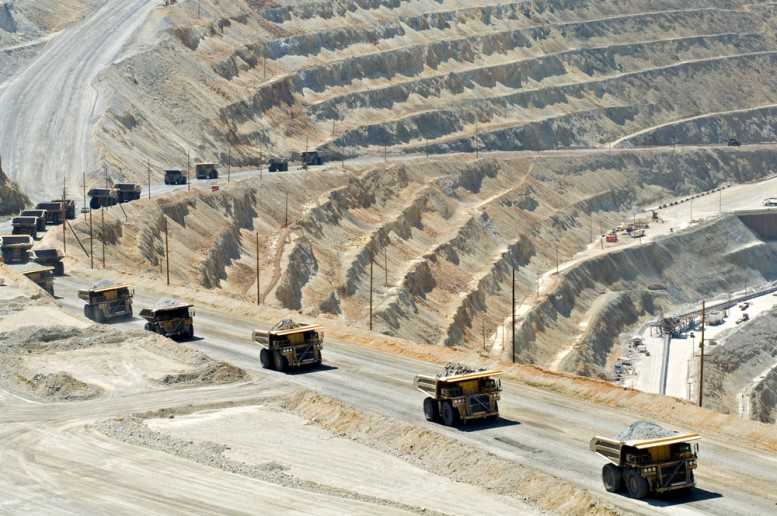Calgary, Alberta–(Newsfile Corp. – November 29, 2022) – Cassiar Gold Corp. (TSXV: GLDC) (OTCQX: CGLCF) (the “Company”) is pleased to announce assay results from an additional six diamond drill holes of the 2022 exploration program completed at the Taurus Deposit, located in the Cassiar North area of the Company’s flagship Cassiar Gold Property in Northern British Columbia, Canada. The Company’s 2022 program included 70 drill holes and over 23,000m of diamond drilling that commenced in June and recently concluded in October. The exploration focus of the drilling targeted high priority areas at the Taurus Deposit, significant vein prospects at Cassiar South and additional brownfields opportunities on the property. Cassiar Gold continues to focus on advancing exploration of the project through deposit expansion, optimization, and the potential for new discovery.
The Taurus Deposit hosts a substantial near-surface, bulk-tonnage inferred gold resource of 1.4 million ounces grading 1.14 g/t Au1 which remains open in all directions. Results from a total of 19,102 metres of drilling (57 drill holes) from the 2022 program remain pending and will be disclosed in subsequent news releases. The results reported are from drill holes designed to test for the potential extension of known mineralization through step-out drilling, confirm historical results, and infill areas of previous widely spaced drilling in the Taurus Deposit to evaluate the potential for continuity of mineralization between resource blocks (Figure 1).
Highlights:
- All drill holes reported in this release intersected multi-meter intercepts of gold mineralization above the 0.5 g/t Au cutoff grade of the 2022 inferred mineral resource at Taurus, confirming historical results and demonstrating expansion potential of mineralization both outside of and within the inferred mineral resource open pit shell and Taurus resource grade shell model (Figure 1).
- Drill hole 22TA-158 at Taurus West intersected 72.3m of 1.09 g/t Au from 337.0m downhole, extending mineralization 50m beyond the extent of the inferred mineral resource open pit shell.
-
Drill hole 22TA-152 at Taurus Central intersected multiple intervals of gold mineralization, including:
-
20.2m of 1.33 g/t Au from 157.4m downhole outside the current resource grade shell, including 0.45m of 25.90 g/t Au,
-
29.1m of 1.17 g/t Au from 279.7m downhole expanding deeper areas of mineralization outside of the inferred mineral resource pit shell.
-
-
Taurus Central drill hole 22TA-149 intersected 36.8m of 1.30 g/t Au from 8.2m downhole, including 5.3m of 4.09 g/t Au, confirming near-surface mineralization encountered in historical drill holes.
“Drilling at the Taurus Deposit continues to increase the confidence within the bulk tonnage resource and highlights the internal growth and expansion potential of mineralization by demonstrating similar grades and apparent thickness as drill holes used in the 2022 Taurus Deposit resource estimate,” stated Marco Roque, CEO of Cassiar Gold Corp. “With our largest drilling program to date at the flagship project now complete, the Company is well positioned for project updates as results are being returned through year-end and into the new year.”
2022 Drilling at the Taurus Deposit – Cassiar North Drill Program
Six drill holes totaling 2,262m are reported and include lateral and down-plunge step-outs, as well as infill holes to test areas of widely spaced drilling in the Taurus Deposit where continuity between resource blocks could not previously be established. Drill holes were designed to test for east-west trending sheeted vein sets and associated bulk-tonnage style mineralization, as well as north-northwest trending, east-dipping disseminated mineralization at depth along the Taurus West Fault. Additionally, the program has continued to advance resource confidence in areas of historical drilling and collect additional structural data to enhance the existing geological model. The deposit remains open in all lateral directions as well as at depth.
Figure 1. Cassiar North 2022 drill campaign drill hole locations plan map of infill drilling in the Taurus deposit (blue square). Pending 2022 drill holes (green), previously reported 2022 drill holes (orange), and holes reported in this press release (yellow). Notes – Historical production figures from Taurus MINFILE Production Detail Report, file number 104P 012, BC Geological Survey. The Taurus East mineralization model (orange) represents upside for expansion of the deposit and was not included in the 2022 Taurus resource model (pink). The drill hole identification ID is shortened on this figure and should be referred to in the body of this press release as 22TA- hole number (ie. 22TA-150).
To view an enhanced version of Figure 1, please visit:
https://images.newsfilecorp.com/files/2958/146008_30283a1024031978_002full.jpg
Taurus West – Drill Holes 22TA-158 and 22TA-147
Drill hole 22TA-158:
Drill hole 22TA-158 (northwest oriented) was designed to expand near-surface mineralization beyond the extent of the 2022 resource and to test down dip extensions of mineralization associated with the Taurus West Fault within a wide gap in previous drilling. Drilling was extended below the Taurus West Fault to assess potential for mineralization in its footwall.
This drill hole returned multiple intercepts (Figure 2, 3; Table 1), that include:
- 11.7m of 0.88 g/t Au from 34.8m downhole in near-surface mineralization well outside the extent of the 2022 resource area, 200m southeast and 100m east of historical drill holes.
- 72.3m of 1.09 g/t Au from 337.0 m downhole – infilling a 150m area and extending mineralization up to 50m beyond the limits of the 2022 resource.
Drill hole 22TA-147:
This northwest oriented drill hole was designed to further evaluate the potential continuity of a south-plunging mineralized trend along the interpreted Taurus West Fault. The drill hole tested an area 100m north-northeast of 20TA-119 and 145m southeast of 21TA-135 (News Release, January 6, 2022), from the 2020 and 2021 drill programs, along the modeled fault surface below the extent of the 2022 resource.
Results returned in 22TA-147 include (Figure 2; Table 1):
- 8.9m of 1.16 g/t Au from 17.0m downhole and 7.1m of 0.73 g/t Au, confirming the distribution of near-surface mineralization in the 2022 resource model.
- 11.9m of 0.93 g/t Au from 269.9m downhole and 25.3m of 1.18 g/t Au from 336.0m downhole, intercepts which expand mineralization proximal to the Taurus West Fault.
These drill holes demonstrate the consistency of grade and apparent thickness of mineralization above the inferred mineral resource 0.5 g/t Au cut-off and proximal to the interpreted Taurus West Fault as well as its potential to further control open areas of mineralization beyond the 2022 pit-constrained inferred mineral resource.
Figure 2. Plan map of 2022 drill holes reported in this release from the Taurus Deposit. The vertical projection of the mineralized intercepts which are reported here are included for reference.
To view an enhanced version of Figure 2, please visit:
https://images.newsfilecorp.com/files/2958/146008_30283a1024031978_003full.jpg
Figure 3. Vertical section showing 22TA-158 at the Taurus Deposit, looking northeast with the 2022 Taurus Resource Grade Shell (pink) for reference. Section width +- 25m.
To view an enhanced version of Figure 3, please visit:
https://images.newsfilecorp.com/files/2958/146008_30283a1024031978_004full.jpg
Taurus Central – Drill holes 22TA-152, 22TA-149, 22TA-150 and 22TA-153
Drill hole 22TA-152:
Drill hole 22TA-152 (northwest oriented) was designed to evaluate the potential extension of a gently southerly plunging mineralized zone interpreted to be associated with the Taurus West Fault, between widely spaced previous drill holes. This hole returned multi-meter gold intercepts outside of the 0.3 g/t Au resource grade shell, including:
- 20.2m of 1.33 g/t Au from 157.4m downhole, including 0.5m of 25.90 g/t Au occurring external to the margin of the 2022 resource grade shell (0.3 g/t Au) and 70m northeast of historical drilling.
- 29.1m of 1.17 g/t Au from 279.7m downhole, occurring along the Taurus West Fault 60-80m from previous drill holes, expanding mineralization outside of the inferred mineral resource pit shell.
This drill hole demonstrates the potential to expand mineralization between resource blocks within the inferred mineral resource pit shell, and to expand mineralization at depth proximal to the Taurus West Fault beyond the constraints of the inferred mineral resource pit shell. (Figure 2, Figure 4).
Figure 4. Vertical section showing 22TA-152 at the Taurus Deposit, looking southwest with the 2022 Taurus Resource Grade Shell (pink) for reference. Section width +/- 25m.
To view an enhanced version of Figure 4, please visit:
https://images.newsfilecorp.com/files/2958/146008_30283a1024031978_005full.jpg
Drill holes 22TA-149, 22TA-150 and 22TA-153:
All three drill holes intersected mineralization at grades higher than the 0.5 g/t Au cutoff grade of the 2022 inferred mineral resource model (Table 1, Figure 2), including:
- Hole 22TA-149 intersected 36.8m at 1.30 g/t Au from 8.2m downhole; including 5.3m at 4.09 g/t Au.
This drilling will be fundamental for updating & expanding the geological and mineralization model in this area.
Table 1. Significant 2022 drilling results from Taurus Deposit based on a >0.5 g/t cutoff.
| Target Area | Drill hole | From | To | Length* | Grade | |
| Taurus West | 22TA-147 | 17.0 | 25.9 | 8.85 m | 1.16 g/t Au | |
| 37.5 | 44.5 | 7.05 m | 0.73 g/t Au | |||
| 66.0 | 70.2 | 4.20 m | 3.40 g/t Au | |||
| incl. | 67.5 | 67.8 | 0.35 m | 19.60 g/t Au | ||
| 85.7 | 93.0 | 7.30 m | 2.95 g/t Au | |||
| incl. | 86.2 | 86.9 | 0.70 m | 27.70 g/t Au | ||
| 218.8 | 227.5 | 8.75 m | 0.53 g/t Au | |||
| 269.9 | 281.8 | 11.90 m | 0.93 g/t Au | |||
| 336.0 | 361.3 | 25.30 m | 1.18 g/t Au | |||
| 22TA-158 | 34.8 | 46.5 | 11.70 m | 0.88 g/t Au | ||
| 337.0 | 409.2 | 72.25 m | 1.09 g/t Au | |||
| Taurus Central | 22TA-149 | 8.2 | 44.9 | 36.75 m | 1.30 g/t Au | |
| incl. | 29.1 | 34.4 | 5.29 m | 4.09 g/t Au | ||
| 22TA-150 | 25.1 | 31.6 | 6.50 m | 0.69 g/t Au | ||
| 75.6 | 79.0 | 3.45 m | 1.73 g/t Au | |||
| 104.2 | 112.4 | 8.15 m | 2.71 g/t Au | |||
| incl. | 104.2 | 105.6 | 1.35 m | 15.45 g/t Au | ||
| 131.6 | 136.2 | 4.65 m | 1.51 g/t Au | |||
| 22TA-152 | 8.0 | 14.4 | 6.45 m | 0.80 g/t Au | ||
| 157.4 | 177.6 | 20.20 m | 1.33 g/t Au | |||
| incl. | 157.4 | 157.9 | 0.45 m | 25.90 g/t Au | ||
| 265.9 | 268.7 | 2.80 m | 5.29 g/t Au | |||
| incl. | 266.3 | 266.9 | 0.55 m | 19.40 g/t Au | ||
| 279.7 | 308.8 | 29.05 m | 1.17 g/t Au | |||
| 22TA-153 | 26.5 | 29.8 | 3.30 m | 2.00 g/t Au | ||
| 69.6 | 85.5 | 15.90 m | 0.90 g/t Au | |||
| incl. | 72.4 | 72.9 | 0.55 m | 13.35 g/t Au | ||
| 105.5 | 106.1 | 0.60 m | 45.20 g/t Au | |||
| 206.0 | 214.7 | 8.70 m | 0.56 g/t Au | |||
| * Drill core lengths are reported here. True widths for these intervals have not been established | ||||||
Qualified Person
The technical information in this news release has been reviewed and approved by Jill Maxwell, P.Geo., Cassiar Gold Corp.’s Exploration Manager, who is a Qualified Person as defined by National Instrument 43-101.
Quality Assurance (QA) and Quality Control (QC)
The 2022 Cassiar drilling program comprises HQ drill core oriented using the REFLEX ACTIII system. Drill core samples are selected and logged by geologists prior to being cut in half using a diamond cutting saw at a secure facility located in Jade City, British Columbia. Certified gold reference standards and blanks are routinely inserted into the sample stream as part of the Company’s QA/QC program. All samples are delivered to the ALS Global preparation facility in Whitehorse, Yukon, where they are processed, and then shipped to the ALS Global analytical facility in North Vancouver, British Columbia. Samples are analyzed for gold by 50-gram fire assay with finish by atomic absorption or gravimetric methods. Screen metallic analysis is performed on selected samples. ALS Global quality systems and technical aspects conform to requirements of ISO/IEC Standard 17025 guidelines.
About Cassiar Gold Corp.
Cassiar Gold Corp. is a Canadian gold exploration company holding a 100% interest in its flagship Cassiar Gold Property located in British Columbia, Canada. The Cassiar Gold property spans 590 km2 and consists of two main project areas: Cassiar North, which hosts a NI 43-101-compliant inferred resource estimate of 1.4Moz at 1.14 g/t Au (cutoff grade of 0.5 g/t Au) known as the as the Taurus Deposit (see National Instrument 43-101 Technical report on the Cassiar Gold property, April 28, 2022, by S. Zelligan, J. Moors, C. Jolette, posted to SEDAR); and Cassiar South which hosts numerous gold showings, historical workings, and exploration prospects. Historical underground mines in the Cassiar South area have yielded over 315,000 oz of Au at average head grades of between 10 and 20 g/t Au (2017, Cowley1), underscoring the high potential for further discovery and expansion of high-grade orogenic gold veins.
The Company also holds a 100% interest in the Sheep Creek gold camp located near Salmo, BC. The Sheep Creek gold district ranks as the third largest past-producing orogenic gold district in BC with historical gold production of 742,000 ounces gold at an average grade of 14.7 g/t gold from 1900 to 1951. Minimal exploration work has been conducted since the 1950s.
Cassiar Gold Corp. acknowledges, respects, and supports the rights of Traditional First Nations in the lands and communities where we operate.
CONTACT INFORMATION
Cassiar Gold Corp.
E-mail: [email protected]
Phone: 236-878-6160
1Cowley, 2017, NI43101 Technical Report on the Cassiar Gold Property, British Columbia, for China Minerals Mining Corp, June 26, 2017, revised Oct 2, 2017
Forward-Looking Statements
This press release may contain forward looking statements including those describing the Company’s future plans and the expectations of management that a stated result or condition will occur. Any statement addressing future events or conditions necessarily involves inherent risk and uncertainty. Actual results can differ materially from those anticipated by management at the time of writing due to many factors, the majority of which are beyond the control of the Company and its management. In particular, this news release contains forward-looking statements pertaining, directly or indirectly, to the Company’s exploration plans and work commitments, mineral resource estimates and the assumptions underlying such estimates, and economic factors, business and operations strategies.
Although the Company believes that the expectations and assumptions on which the forward-looking statements are based are reasonable, undue reliance should not be placed on the forward-looking statements because the Company can give no assurance that they will prove to be correct. Since forward-looking statements address future events and conditions, by their very nature they involve inherent risks and uncertainties, actual results could differ materially from those currently anticipated due to a number of factors and risks. These include, but are not limited to, general economic, market or business conditions, risks associated with the exploration and development industry in general (e.g., operational risks in development, exploration and production; the uncertainty of mineral resource estimates; the uncertainty of estimates and projections relating to production, costs and expenses, and health, safety and environmental risks), constraint in the availability of services, commodity price and exchange rate fluctuations, the current COVID-19 pandemic, changes in legislation impacting the mining industry, adverse weather conditions and uncertainties resulting from potential delays or changes in plans with respect to exploration or development projects or capital expenditures.
Readers are cautioned that the foregoing list of risk factors should not be construed as exhaustive. These statements speak only as of the date of this release or as of the date specified in the documents accompanying this release, as the case may be. The Company undertakes no obligation to publicly update or revise any forward-looking statements except as expressly required by applicable securities laws.
Neither the TSX Venture Exchange nor its Regulation Services Provider (as that term is defined in the policies of the TSX Venture Exchange) accepts responsibility for the adequacy or accuracy of this release.
____________________________
1 See April 28, 2022, NI43-101 Report titled “National Instrument 43-101 Technical Report on the Cassiar Gold Property” by Zelligan, P.Geo, Moors, P.Geo, Jolette, P.Geo.

To view the source version of this press release, please visit https://www.newsfilecorp.com/release/146008
Featured image: DepositPhotos © oranhall



















